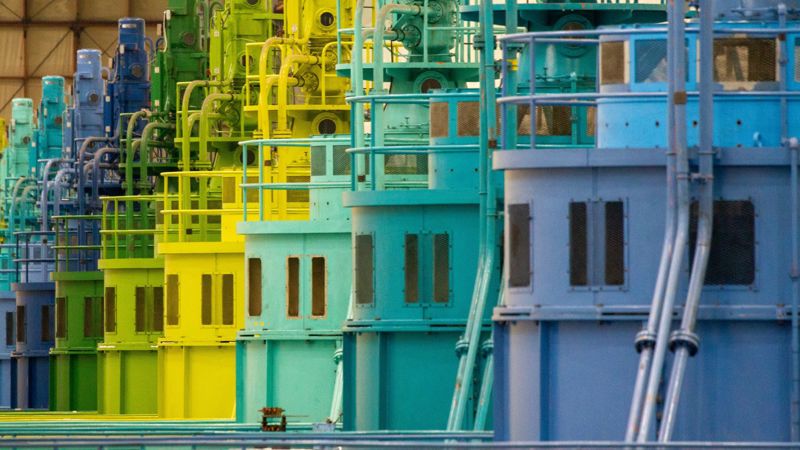
The implications of long-term differences in energy costs on the competitiveness of energy-intensive industries in Germany are at the centre of the analyses conducted by Frontier Economics in collaboration with IW Consult on behalf of the German think tank Dezernat Zukunft.
The final report was published on August 30th.
The study comprises two central steps:
- The focus of the first step was analysing international energy costs and comparing future production of industrial raw materials (steel, aluminium, ammonia, HVC) in Germany with the energy and transportation costs of importing foreign products or raw materials (led by Frontier Economics).
- In the second step, IW Consult analysed the potential impacts of the considered energy cost differences on industrial value chains in Germany, as well as the purchasing decisions of downstream consumers.
Comparative analysis of energy and transportation costs in the production of energy-intensive raw materials
When we consider the production and transportation costs of renewable energies in international comparison, we can draw the following conclusions:
- Germany will continue to have energy cost disadvantages compared to other industrial locations in the long term. Volatile production costs (LCOE/LCOH) in Germany in 2045 will be significantly higher than costs in the considered comparison countries. However, climate-neutral production of industrial raw materials requires relatively constant (baseload) energy input. Seasonality and storage costs must therefore be taken into account. Thanks to existing storage infrastructure, Germany is in a good position here, but the disadvantages of lower capacity utilisation hours of renewable energy generation compared to comparison countries outweigh the advantages.
- Additionally, Germany faces high opportunity costs for energy. Limited renewable generation potentials and high energy demand mean that opportunity costs for energy use in Germany are expected to be higher in the future than in other (potentially energy-exporting) countries. This means that cost disadvantages of energy-intensive industries could potentially be even higher than implied by the pure energy production costs.
- Transportation costs have a significant influence on German hydrogen import costs. Transport via pipeline (e.g., from Norway, Spain, or Morocco) is much cheaper than by ship. Ship transport is not very sensitive to transport distance; costs mainly arise from conversion steps. When using pure hydrogen in Germany, ship imports are therefore more expensive than pipeline imports. This changes with the direct use of hydrogen derivatives, which can be better transported by ship and do not need to be converted anymore (e.g., ammonia or methanol).
When we examine various scenarios for outsourcing value chains of primary production of raw materials such as aluminium, high-value chemicals (olefins), ammonia, and steel, we find that increased outsourcing of production decreases energy costs (see Figure 1):
- Importing hydrogen for industrial use in Germany is often the most expensive option considered (except for pipeline import from Norway). In contrast, importing intermediate or final products decreases total energy costs. Complete outsourcing of value chain steps is associated with the greatest energy cost advantages.
- Incremental energy cost savings decrease along the vertical value chain, meaning they are lower when outsourcing the final production steps compared to outsourcing earlier production steps or intermediate steps. This results in a potential "breaking point" after the first value-added stage: When importing an intermediate product (e.g. DRI), Germany would have a smaller cost disadvantage for the last production step compared to importing a final product (e.g., raw steel).
Figure 1: Energy and transportation-related costs of industrial raw materials in the year 2045

Strategic Adaptive Responses of Affected Companies
To assess the significance of long-term price differences from the perspective of downstream industries, IW Consult conducted interviews with companies from focus sectors as part of the study, whose intermediate inputs contain a significant portion of the considered raw materials – yielding the following key findings:
- In most sectors, indirect energy costs, i.e., energy costs included in energy-intensive intermediate inputs, exceed direct energy costs.
- Domestic demand for raw materials will be sensitive to structural price differences between domestically and internationally produced resources.
- In the case of substantial price increases, the proportion of recipient industries considering relocation abroad or business closure would increase. Survey results suggest that domestic production would no longer be profitable to some extent in the face of significant and extreme raw material price differences.
- Without countermeasures and when considered in isolation, the German economy faces a welfare loss of 1.7 to 4.5 percent over ten to 15 years. 1.7 million jobs are at risk, primarily in downstream industries.
The full report is available in German below.










